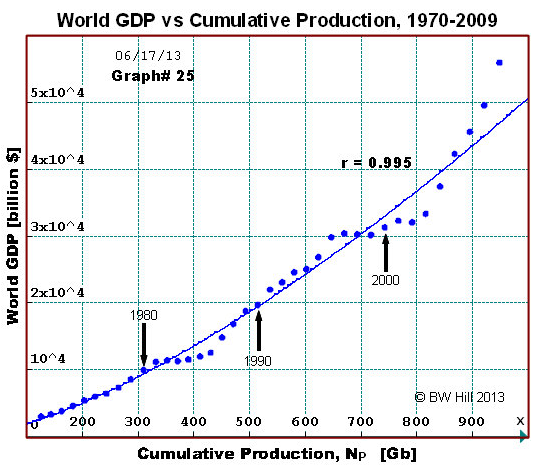Energy Physics for Dummies
If you had ever working in the chemical industry, or in shipping, to give just two examples, you would realise that these cycles are common features of markets in which there is a significant time-lag between price changes and the bringing to market of additional capacity.
None of this has anything to do with physics.
You are 100% wrong! Available energy is always the starting point if you want to accomplish any actual work. And that has everything to do with physics.
Let's say you had a shipping company, like you just mentioned, for example. If you want to ship any actual stuff (and make some actual money), what do you need besides some trucks and some drivers? Here is a hint: The obvious answer is energy, in this case diesel fuel. Without it, your shipping company cannot possibly move the weight of goods to be shipped. And if the cost of diesel fuel is too high, your shipping company will not make a profit. Period. So, the physics of energy is very closely related to the dollars you can earn. No energy = No economy.
So it is nonsense to say a rise in energy cost inevitably means a shrinking of the economy. Its growth will certainly be inhibited by rising energy costs,...
No one ever suggested that a rise in energy cost inevitably leads to shrinkage of the economy. That is a straw man. You go on to say that economic growth is inhibited by rising energy costs. This is logical and true because of the physics of energy, and how that relates to the economy. But you also seem to be at least implying that while economic growth can be inhibited, it cannot ever be stopped or reversed. This is clearly false.
...Free market economies adapt...
This is the invisible hand argument. It is an economics argument, not a physics argument.
1) All markets aren't necessarily free. Have you factored that in to your claim?
2) Markets, free or not, do not have an unlimited ability to adapt to anything that comes along. If you are claiming that markets actually do have some sort of magical unlimited capability to adapt to high oil prices, then the burden of proof for that stupid claim is on you.
...but depending on the degree and rate of rise, it may well be able to accommodate this without massive shocks.
See what I mean? This is a very wishy washy thing to say. What if the degree and/or rate of rise is higher than can be accommodated by the invisible hand you keep invoking? What happens then? (Hint---the oil price will crash, just like it did starting in June of 2014.)
Of course I'm not arguing there is NO need for energy. That is a silly reductio ad absurdum...
It is good that you are at least able to recognize that energy is needed for the economy.
...I'm arguing what I said I was, which is that there is no one to one relationship between energy use and economic activity.
Who said anything about about a perfect one to one relationship? That is a straw man. Here is the actual relationship between world oil production and world GPD:
http://www.thehillsgroup.org/depletion2_012.htm
That is a very close relationship, isn't it? That is because the relationship is based on the physics of energy.
If the relationship between oil use and GDP has nothing to do with physics, how do you explain the close correspondence between world oil production and world GDP? 
Please answer this important point. Thanks.
exchemist said:
None of this has anything to do with physics.
Wrong.
exchemist said:
Again, none of this has anything to do with physics.
Wrong again.
exchemist said:
None of this is physics. It is a matter of economics and of history.
Wrong yet again. You are so repetitive. And no one with a solid physics background would make such a stupid claim. Please re-read this post to see why your stupid claim is factually incorrect.
You still sound more like an execonomist than an exchemist.
My post here is a bit sarcastic (you deserve it, considering what you are trying to claim), but this is also quite a serious post about the physics of energy and how it is related to the economy. If you want to be sarcastic to me in kind, you are welcome to
try. But please, do at least attempt to include some kind of serious answer to the physics point in question. Thanks.
---Futilitist






